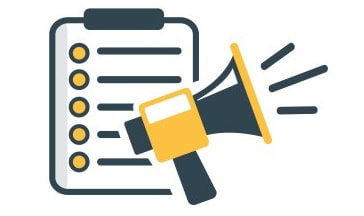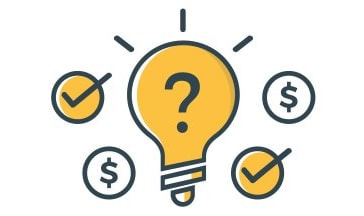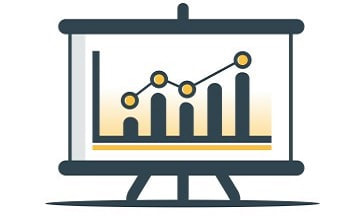BlackBull Markets Review
BlackBull Markets is a New Zealand based forex and CFD broker headquartered in Auckland. This guide introduces you to a domestic broker operating exclusively under New Zealand business laws and financial services legislation.
Updated 28 February 2024
BlackBull Markets is a forex and CFD broker offering the popular MetaTrader 4 and MetaTrader 5 platforms to trade forex, indices, precious metals and energy products with high leverage. The company is headquartered in Auckland and is a domestic broker of forex and CFDs.
BlackBull Markets Summary
Our guide covers:
Looking to compare Blackbull Markets with other platforms? CMC Markets vs Plus500 vs IG vs BlackBull Markets covers this in detail.
Advertising Disclosure: We may earn a referral bonus for anyone that clicks on some of the below links - see our Advertising Policy for more details.
Know this First: FX and CFD trading risk warning
Under New Zealand law, companies like BlackBull Markets are not limited to how much leverage they grant to customers. Nor are they required to perform competency tests to determine if clients have adequate experience to trade highly speculative instruments, such as FX and CFDs. BlackBull Markets offers leverage as high as 1:500. Keep in mind that when you sign up with this provider, you may elect to lower the leverage to a rate you’re more comfortable with. If forex and CFDs are new to you, we strongly recommend reading our guides to:
Investment risk warning
Any type of investment comes with risk as there is always a chance that when you liquidate a position, the market value is lower than what you initially paid. However, trading highly speculative and leveraged products such as forex, contracts for difference and options are riskier by orders of magnitude. Before investing in any products, whether it be cash equities or leveraged CFDs, make sure you know what you’re doing and have a tried and tested trading strategy.
BlackBull Markets is a forex and CFD broker offering the popular MetaTrader 4 and MetaTrader 5 platforms to trade forex, indices, precious metals and energy products with high leverage. The company is headquartered in Auckland and is a domestic broker of forex and CFDs.
BlackBull Markets Summary
- BlackBull Markets is headquartered in Auckland, is authorised as a Derivatives Issuer by the Financial Markets Authority and is owned and operated by New Zealanders.
- You can trade on either MetaTrader 4 or MetaTrader 5, using desktop, web or mobile applications.
- BlackBull offers sophisticated low latency and API trading solutions for high-frequency trading algorithms.
- The company offers a handful of highly liquid trading instruments with competitive pricing but lacks a diverse range of trading products; currently 26,000 trading assets with a lot of these via MT5, including major US shares like Apple, Google, Amazon, Microsoft etc. Investing instruments include 64 forex pairs, 15 indices, 26,000 stocks and 21 commodities.
- BlackBull offers both Share CFDs as well as the investment in the underlying equity. Also, underlying share assets can be purchased on the mobile app (BlackBull Shares).
- Although you can open a demo account to test either MT4 or MT5, and there is no expiry date for verified users.
- You can trade with leverage up to 1:500.
Our guide covers:
- Overview of BlackBull Markets
- Costs to Trade with BlackBull Market
- Getting Started with BlackBull Markets
- Frequently Asked Questions
Looking to compare Blackbull Markets with other platforms? CMC Markets vs Plus500 vs IG vs BlackBull Markets covers this in detail.
Advertising Disclosure: We may earn a referral bonus for anyone that clicks on some of the below links - see our Advertising Policy for more details.
Know this First: FX and CFD trading risk warning
Under New Zealand law, companies like BlackBull Markets are not limited to how much leverage they grant to customers. Nor are they required to perform competency tests to determine if clients have adequate experience to trade highly speculative instruments, such as FX and CFDs. BlackBull Markets offers leverage as high as 1:500. Keep in mind that when you sign up with this provider, you may elect to lower the leverage to a rate you’re more comfortable with. If forex and CFDs are new to you, we strongly recommend reading our guides to:
Investment risk warning
Any type of investment comes with risk as there is always a chance that when you liquidate a position, the market value is lower than what you initially paid. However, trading highly speculative and leveraged products such as forex, contracts for difference and options are riskier by orders of magnitude. Before investing in any products, whether it be cash equities or leveraged CFDs, make sure you know what you’re doing and have a tried and tested trading strategy.
BlackBull Markets in New Zealand
BlackBull Markets is registered and licensed in New Zealand. The New Zealand company was incorporated in 2014 as Black Bull Group Limited with company number 5463921. The company is registered as a Financial Services Provider with FSP no. FSP403326[1] and licensed as a Derivatives Issuer with the Financial Markets Authority since August 2020. A requirement to be registered on the FSPR is that all firms must also be members of an independent dispute resolution scheme. The company is a member of the Financial Services Complaints Limited (FSCL), with membership number 12527.
In-House Research - In August 2022, BlackBull Markets acquired research firm ATM Strategy Research, an Auckland-based company founded by Hamesh Sharma, Pathfinder's portfolio manager. The purchase of ATM established BlackBull Research which focuses on NZX, ASX, and US shares. The service is free for one month and then $45 per month thereafter (or $450 per year).
In-House Research - In August 2022, BlackBull Markets acquired research firm ATM Strategy Research, an Auckland-based company founded by Hamesh Sharma, Pathfinder's portfolio manager. The purchase of ATM established BlackBull Research which focuses on NZX, ASX, and US shares. The service is free for one month and then $45 per month thereafter (or $450 per year).
BlackBull Markets corporate overview
BlackBull Markets launched in 2014, at a time before any formal regulatory regime was established in New Zealand. The company operated as a registered Financial Services Provider until it became authorised by the FMA in 2020. A related company, BBG Limited, is also licensed by the Financial Services Authority Seychelles, a popular regulatory destination where dozens of forex and CFD brokers are also authorised to provide investment services internationally.
BlackBull has been a constituent of the Deloitte Fast 50 on multiple occasions. It’s an index that recognises the fastest-growing companies in New Zealand within the technology sector. A rarity of the online trading industry is the BlackBull Markets owners and managers do not hide behind complex ownership structures or aggressive marketing machines but act as public figures and brand ambassadors on the local New Zealand fintech scene.
BlackBull has been a constituent of the Deloitte Fast 50 on multiple occasions. It’s an index that recognises the fastest-growing companies in New Zealand within the technology sector. A rarity of the online trading industry is the BlackBull Markets owners and managers do not hide behind complex ownership structures or aggressive marketing machines but act as public figures and brand ambassadors on the local New Zealand fintech scene.
BlackBull Markets' Trading Platforms
BlackBull Markets offers MetaTrader 4 and MetaTrader 5 platforms. Both platforms, developed by MetaQuotes, are well known throughout the forex trading industry and need no introduction.
Although all MT4 and MT5 platforms look the same on the surface, it’s what goes on behind the scenes that traders care about, and that’s how brokers compete. The quality of the platform hosting, latency to execution venues, quality of price feeds and range of products can vary widely across brokers.
If you’re a point-and-click type of trader, then your assessment of a broker will be superficial. However, the MetaTrader platforms are well known for their automated trading capabilities, and factors such as latency and execution quality become more relevant.
Although all MT4 and MT5 platforms look the same on the surface, it’s what goes on behind the scenes that traders care about, and that’s how brokers compete. The quality of the platform hosting, latency to execution venues, quality of price feeds and range of products can vary widely across brokers.
If you’re a point-and-click type of trader, then your assessment of a broker will be superficial. However, the MetaTrader platforms are well known for their automated trading capabilities, and factors such as latency and execution quality become more relevant.
Automated trading solutions offered by BlackBull
The following sections are advanced and probably not relevant to most readers, but we have included them for completeness.
BlackBull offers clients depositing more than US$2,000, and trade volumes exceeding twenty lots (i.e., 20 million NZD/USD, or 2,000 ounces of gold, or 20 AUS20 index contracts) a free Virtual Private Server (VPS) to install their chosen trading platform where they run an automated trading strategy 24-hours a day with minimal interruption.
BlackBull offers FIX API access, the native messaging protocol of the securities trading industry. FIX is the method that most, if not all, forex transactions are processed. It allows one server to talk directly to another server without a human to click buy or sell buttons or a software application like MT4 to run an automated trading algorithm. BlackBull can provide a FIX connection to any of their trading servers located in NY4 and LD5. All regional major market-makers and venues are based in many cases physically connected, also known as cross-connected.
As BlackBull positions itself as a destination for automated traders, an important characteristic is operating under a low-cost, low-latency, deep-liquidity, non-dealing desk, straight-through processing (STP) model. These are buzz words that many brokers throw around, and it’s hard to know what they truly mean.
In the section below, we explain a few of these terms and concepts and why they are significant to some traders:
Available Trading Instruments
BlackBull Markets specialises in forex and a handful of other highly liquid products. The available instruments include 64+ currency pairs, indices from major markets, precious metals such as gold and silver, and commodities including energy, gas, and oil.
Although the product offering is slim, the trading conditions might be preferable to your strategy. Of course, if you’re looking to trade CFDs of Apple shares, BlackBull is not for you. However, if you’re an active ASX200 day trader and looking for low spreads and commissions, then you might just fund what you’re looking for.
BlackBull offers clients depositing more than US$2,000, and trade volumes exceeding twenty lots (i.e., 20 million NZD/USD, or 2,000 ounces of gold, or 20 AUS20 index contracts) a free Virtual Private Server (VPS) to install their chosen trading platform where they run an automated trading strategy 24-hours a day with minimal interruption.
BlackBull offers FIX API access, the native messaging protocol of the securities trading industry. FIX is the method that most, if not all, forex transactions are processed. It allows one server to talk directly to another server without a human to click buy or sell buttons or a software application like MT4 to run an automated trading algorithm. BlackBull can provide a FIX connection to any of their trading servers located in NY4 and LD5. All regional major market-makers and venues are based in many cases physically connected, also known as cross-connected.
As BlackBull positions itself as a destination for automated traders, an important characteristic is operating under a low-cost, low-latency, deep-liquidity, non-dealing desk, straight-through processing (STP) model. These are buzz words that many brokers throw around, and it’s hard to know what they truly mean.
In the section below, we explain a few of these terms and concepts and why they are significant to some traders:
- Non-dealing desk (NDD): Many traders think dealing desks are to be distrusted, as a broker has the opportunity to interfere with your orders, making a conscious decision whether to fill it and at what price. This premise completely ignores that someone needs to decide to accept your order, if not your broker, someone else. This is not the reason why dealing desks are distrusted. They are an extra layer slowing down execution, which is counterproductive to high-frequency trading strategies.
- Electronic communication network (ECN): An ECN is a marketplace or trading venue, much like a stock exchange. Forex ECNs are considered to be the most cost-effective methods for trading forex. The venue charges a commission on all transactions, usually as low as 0.005% (half a basis point). Forex ECNs attract a diverse range of participants who are all there for different reasons; some are there to buy, some are there to sell. The competition and diversity minimises spreads.
- Deep liquidity from Tier-1 banks: The downside of a forex ECN is that it depends on participants’ activity, meaning it can’t always be relied on at all times. Banks operate dealing desks and may charge a lot more but can execute large orders on-demand. The fact that a bank is tier-1 just means that it’s a very large institution. In reality, it’s unlikely that any retail broker trades directly with a bank like Barclays, Deutsche Bank, or Credit Suisse; instead, they would go through a prime broker.
- Straight through processing (STP): STP is a general computing concept. It simply means that requests are sent directly to their destinations without any manual intervention. As there is no dealing desk, it’s already implied a broker operates an STP model, but brokers like to mention it nonetheless.
- Low-latency and co-location: For the average point-and-click trader, you won’t notice the difference between one second or half a second, but for an automated trading strategy, it can be quite significant. Latency is related to processing capabilities, bandwidth and geographical distance. Brokers try to install their servers as close as possible to other participants to reduce the distance information needs to travel. New Zealand literally couldn’t be further away from London or New York; therefore, latency can be an issue. That’s why many traders run automated trading strategies on VPSs near the primary trading servers in New York, London or Tokyo to benefit from faster execution than trading from a computer in Auckland.
Available Trading Instruments
BlackBull Markets specialises in forex and a handful of other highly liquid products. The available instruments include 64+ currency pairs, indices from major markets, precious metals such as gold and silver, and commodities including energy, gas, and oil.
Although the product offering is slim, the trading conditions might be preferable to your strategy. Of course, if you’re looking to trade CFDs of Apple shares, BlackBull is not for you. However, if you’re an active ASX200 day trader and looking for low spreads and commissions, then you might just fund what you’re looking for.
Costs to trade with BlackBull Markets
BlackBull Markets gives clients the choice of trading three account types, each of which has a minimum deposit requirement. The larger the deposit requirement, the lower the fees. Just like most brokers, the main costs are commissions, spreads, and swaps. There are no market data costs or inactivity fees when trading with BlackBull.
Trading account comparison
The three account types are Standard, Prime and Institutional. The Institutional account requires a minimum deposit of US$20,000, and commissions are defined as ‘negotiable’ and spread starting from 0 pips - for this reason it's impossible to present a constructive comparison using that account. Therefore, our comparison of the costs of placing a trade looks at the Standard and Prime account options.
1. Standard account
Example: You place a trade for 0.5 lot of EUR/USD, and the spread is 0.9 pips when you open and close the trade. The value of 1 pip is US$10 per lot of EUR/USD. That means you’d pay US$4.50 in spread to open and US$4.50 to close the position. The total cost is US$9.00.
In another example, let’s calculate a trade for 0.2 lots of AUD/NZD, with a spread of 2.8 pips when you open and 3.2 when you close the trade. The value of 1 pip is NZ$10 per lot of AUD/NZD. That means you’d pay NZ$5.60 in spread to open and US$6.40 to close the position. The total cost is NZ$12.00.
2. Prime Account
Example: You place a trade for 0.5 lots of EUR/USD, and the spread is 0.2 pips when you open and close the trade. The value of 1 pip is US$10 per lot of EUR/USD. That means you’d pay US$1 in the spread to open and US$1 to close the position. The commission charged US$6 per lot for the round trip, meaning US$3 to open one-lot and the same to close. In this example, you’d pay US$1.50 per-side. The total cost is US$5.00.
In another example, let’s calculate a trade for 0.2 lots of AUD/NZD, with a spread of 2 pips when you open and 2.4 when you close the trade. The value of 1 pip is NZ$10 per lot of AUD/NZD. That means you’d pay NZ$4 in spread to open and US$4.80 to close the position. The commission charged US$6 per lot for the round trip. In this example, you’d pay US$1.20 per-side; if converted to NZD at the rate of 0.714, that would be NZ$1.68 per side. The total cost is NZ$12.16.
1. Standard account
- Minimum deposit: $0
- Spreads: from 0.8 pips
- Commission: none
- Swaps: vary by instrument
Example: You place a trade for 0.5 lot of EUR/USD, and the spread is 0.9 pips when you open and close the trade. The value of 1 pip is US$10 per lot of EUR/USD. That means you’d pay US$4.50 in spread to open and US$4.50 to close the position. The total cost is US$9.00.
In another example, let’s calculate a trade for 0.2 lots of AUD/NZD, with a spread of 2.8 pips when you open and 3.2 when you close the trade. The value of 1 pip is NZ$10 per lot of AUD/NZD. That means you’d pay NZ$5.60 in spread to open and US$6.40 to close the position. The total cost is NZ$12.00.
2. Prime Account
- Minimum deposit: US$2,000
- Spreads: from 0.1 pips
- Commission: US$6.00 per round-turn lot
- Swaps: vary by instrument
Example: You place a trade for 0.5 lots of EUR/USD, and the spread is 0.2 pips when you open and close the trade. The value of 1 pip is US$10 per lot of EUR/USD. That means you’d pay US$1 in the spread to open and US$1 to close the position. The commission charged US$6 per lot for the round trip, meaning US$3 to open one-lot and the same to close. In this example, you’d pay US$1.50 per-side. The total cost is US$5.00.
In another example, let’s calculate a trade for 0.2 lots of AUD/NZD, with a spread of 2 pips when you open and 2.4 when you close the trade. The value of 1 pip is NZ$10 per lot of AUD/NZD. That means you’d pay NZ$4 in spread to open and US$4.80 to close the position. The commission charged US$6 per lot for the round trip. In this example, you’d pay US$1.20 per-side; if converted to NZD at the rate of 0.714, that would be NZ$1.68 per side. The total cost is NZ$12.16.
Getting started with BlackBull Markets
1. Opening a Demo Account
Before getting started with BlackBull Markets, or any other broker for that matter, you should always open a demo account. A demo account is a sandbox for you to explore the platform features, range of trading instruments, spreads, swaps and practice your trading strategy. You can open a demo account with BlackBull Markets here.
2. Opening a Live Account
You can apply for a live trading account here. When registering, keep in mind that you need to have your passport or ID and a proof of residence document available. Most of our readers are probably already aware of what’s required to open accounts for financial services products online, so we won’t go into much detail on why brokers need sensitive personal information. What’s important is their ability to keep it safe. The upside of trading with a company based in New Zealand is the familiarity of privacy laws they’re required to follow.
3. Funding your Trading Account
BlackBull Markets offers a variety of funding methods. More so than most New Zealand brokers. Besides the classic bank transfer and credit/debit card transactions, the company also offers Skrill, Neteller, China Union Pay and FasaPay.
Customer funds are held in a segregated account and ANZ Bank. There is also the option to deposit funds in accounts held with Maybank and RHB. Altogether, the company accepts deposits in NZD, AUD, USD, EUR, GBP, SGD, CAD, JPY and ZAR. Not all of the available deposit currencies are supported by all payment methods. When depositing funds to your account, keep in mind that if you want to open a new account in a different currency later, you’ll pay a conversion fee of 2%.
Looking to compare Blackbull Markets with other platforms? CMC Markets vs Plus500 vs IG vs BlackBull Markets covers this in detail.
Customer funds are held in a segregated account and ANZ Bank. There is also the option to deposit funds in accounts held with Maybank and RHB. Altogether, the company accepts deposits in NZD, AUD, USD, EUR, GBP, SGD, CAD, JPY and ZAR. Not all of the available deposit currencies are supported by all payment methods. When depositing funds to your account, keep in mind that if you want to open a new account in a different currency later, you’ll pay a conversion fee of 2%.
Looking to compare Blackbull Markets with other platforms? CMC Markets vs Plus500 vs IG vs BlackBull Markets covers this in detail.
BlackBull Markets - Frequently Asked Questions
Will BlackBull Markets let me open an MT4 and MT5 account at the same time?
Yes. You’re able to open multiple trading accounts on different platforms. From the client portal, you can transfer funds from one trading account to another.
If the minimum deposit is US$50, what if my account balance falls below this amount?
The minimum deposit is only applicable for the first time you deposit. After your first deposit, you can deposit smaller amounts whenever you want. If you lose money and your balance falls below US$50, you don’t need to worry about your account being disabled.
I’m not from New Zealand. Will BlackBull Markets still open an account for me?
Yes. BlackBull Markets can accept clients from most countries, but there are some limitations according to their anti-money laundering policy.
How long does it take to open an account with BlackBull Markets?
You can complete the registration process quite quickly as it’s performed online. Just make sure you have all of the required documentation to verify your identity and address. The primary cause of delays are providing blurry or cropped images, so make sure whatever you submit is picture-perfect. Once the documents are received, you should expect feedback within 24-hours.
Where are BlackBull Markets based?
BlackBull Markets is based in New Zealand, where the company is authorised as a Derivatives Issuer by the Financial Markets Authority. There is also a related company called BBG Limited that is incorporated and regulated by the Financial Services Authority (FSA) of Seychelles.
What is the difference between a demo account and a live account?
Demo accounts are designed to provide a similar experience to live accounts but without the risk. A demo account is loaded with virtual funds to test a trading platform’s functionality and the trading conditions of a particular broker or product. Brokers should aim to maintain consistency between live and demo trading platforms to align the experience. Not everything can be replicated, such as slippage, which is a phenomenon that occurs in a live trading environment and is hard to emulate.





